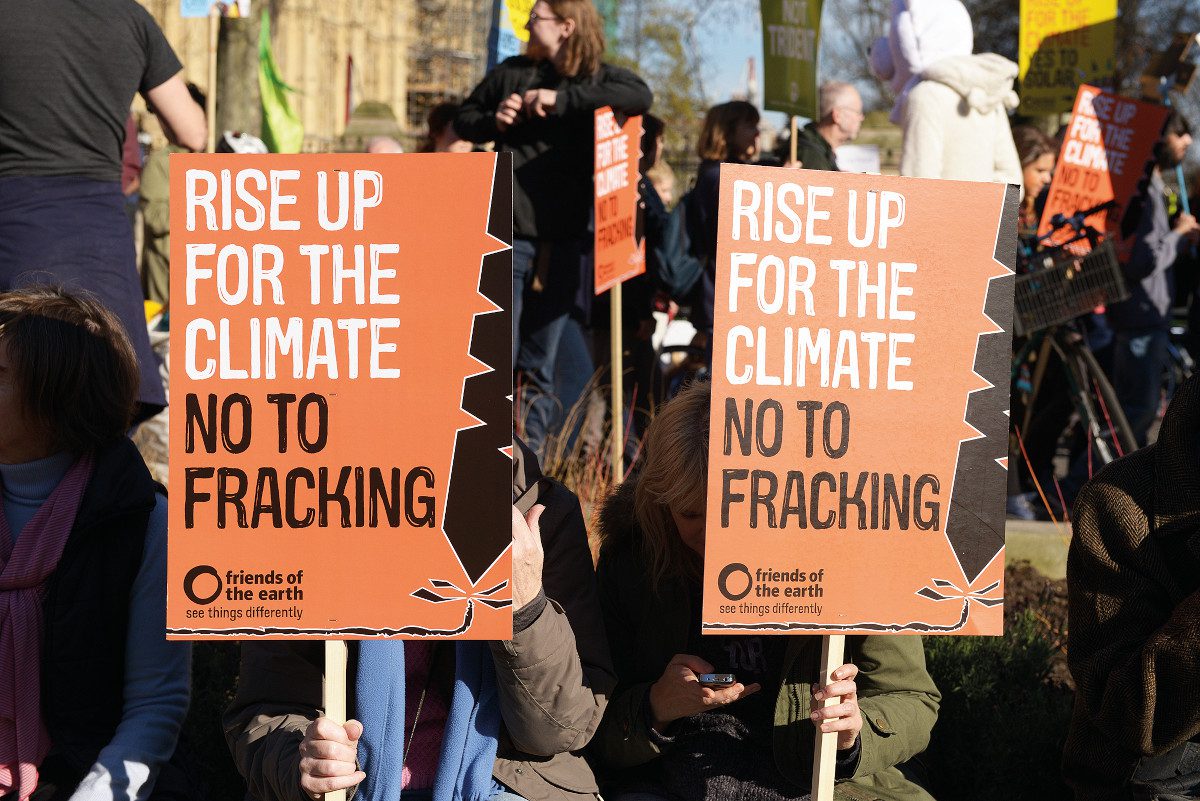
The government’s lifting of the moratorium on fracking on 22 September was accompanied by assurances that it would only take place where there was local consent. But the detail of this consenting process has remained unclear, with many concerned that there might be attempts to circumvent local democracy, where there is almost universal opposition to the practice. Meanwhile, the technical problems that occasioned the 2019 ban appear unsolved.
At this stage, ending the ban on shale exploration means allowing companies already holding licenses to begin seeking permission to conduct exploration work. The Department for Business, Energy and Industrial Strategy (BEIS) has also said it will commence a new round of offering licenses.
Speaking to announce the lifting of the ban, Secretary of State for Business, Energy and Industrial Strategy Jacob Rees-Mogg said his government was “going to ensure the UK is a net energy exporter by 2040”, adding that: “To get there we will need to explore all avenues available to us through solar, wind, oil and gas production”. He has also since opened a new licensing round for oil and gas companies in the North Sea, on 7 October.
Quite apart from its incompatibility with the UK’s commitment to net zero, fracking’s environmental pitfalls include its wastewater production, comprising high volumes of brine in addition to some man-made chemicals, and – in the UK – its potential to cause earthquakes.
The risk of polluting underground water resources seemed to be foremost in the mind of Tory council leader Jonathan Owen when he supported a vote to ban fracking in East Yorkshire in early October. Speaking to the BBC he voiced concern about “the effect on the aquifer under the Wolds” and on “our ambitions to have an Area of Outstanding Natural Beauty.”
Publication of a Government-commissioned report by the British Geological Society on fracking safety has been repeatedly delayed. But a leak of its contents to The Guardian in mid-September revealed a conclusion that forecasting fracking-induced earthquakes (and their size) “remains a scientific challenge”.
Other, slightly more trenchant opposition from experts has included objections on the grounds of geology, that the types of rock in which UK shale gas is stored simply can’t support the practice.
In August there were signs that fracking firms might attempt to secure consent by approaching individual households with inducements. Charles McAllister, Director of policy at UK Onshore Oil and Gas, told the Daily Mail that firms were preparing to offer people a 25% cut in their energy bills in return for supporting drilling operations. Other options being considered included a donation of £100k to communities that accept a test drilling site, and shares in local revenues if any go into production.
A plan to push ahead without public consent has some precedent in the UK, given the October 2016 decision by Sajid Javid to allow Cuadrilla’s appeal against Lancashire County Council’s refusal of permission to frack at Preston New Road, near Blackpool
On 30 September, Sarah McMonagle, acting director of campaigns and policy at CPRE, the countryside charity, said:
“It would be simply extraordinary for the government to blow up local democracy in an ill-advised attempt to force fracking onto rural communities. If ministers really do intend to give gas companies the scope to show ‘consent’ off the back of cash for votes, it would amount to planning permission being bought and sold.
“If these reports are true, the ability of local authorities to act on community concerns about the impact fracking would have on their neighbourhoods would be critically undermined.
“At the moment, the legal position is clear that the offer of community benefits, such as financial incentives, can’t be a factor in deciding planning applications. Offering bribes to the closest households will not make fracking acceptable to the wider community. CPRE fundamentally opposes any suggestion that planning permission can be bought and sold.”







